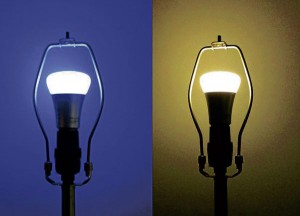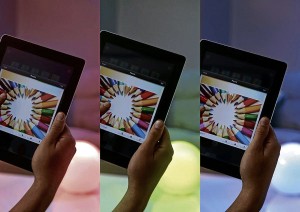
COOL or warm? Hue literally gives you millions of color options—all coming from the same light bulb.
No pun intended.
Just the other day my partner and husband Ding bought two LED downlights from the nearby home depot for our bathroom in the office. At only five watts for each fixture, it didn’t seem bright enough for me. The last time I checked, a five-watt LED was a dim and dull white light that looked not only dark, but sad as well. But voila! These were bright! The illumination had the crisp whiteness that bathed the bathroom so bright, it looked like it smelled so good.
So this fixture was quite efficient for an LED with a nice tone of white to boot. But LEDs have evolved from mere lighting into mood-altering sources of illumination. Now, they are being designed to be personalized. Welcome to the colorful world of “Hue.”
While going wireless and remotely controlling lights and other electrical appliances have been around since the 1980s, what the Hue offers is the main feature of any digitally controlled lighting system—on a small scale. Think Las Vegas, or the light shows so popular in other big cities where colors change, lights flicker, dim or brighten with programmed digital systems. Hue is, essentially, your own personal light show.
Preset color tones
The system has preset color tones for different tasks named: “Energize,” “Reading,” “Relax” and “Concentrate.” These four light settings are the result of many experiments to understand the neurological effects of light. “Reading” and “Relax” are warmer tones that put you into a calm and nurtured disposition, while “Energize” and “Concentrate” are cooler or whiter tones that heighten your alertness level and make you more wakeful. But really, the palette of Hue can thrust you into a world of visual sensations with the 16-million color tones it can create.
So how does it work? There are four basic components to this system: the bulb itself; a wireless “brain”; your smartphone app; and a Hue web account.
Hue’s bulb is composed of 11 LED cathodes (or those tiny bulbs within your bulb) that add up to 8.5 watts of power. The bulb looks like the classic incandescent lamp that you can screw into any light fixture: your bedside lamp, desk lamp or ceiling fixture. But what you don’t see is the wireless radio system within the bulb that allows you to connect to other electrical appliances or interface with other digital home systems.
Wireless gateway

USING an Android or IOS smartphone, Hue can pick up any color from your monitor and mimic it into your lighting system.
Then you have the wireless gateway called the “bridge,” which is the lifeline between your bulbs and your smartphone application. The “bridge” connects to your wireless Internet router and communicates with your light bulbs. While the bulb is the heart of the system, stirring up emotions as light color changes, the “bridge” is like the head, where all the technical magic happens.
Then there’s the Android or iOS app that you should download into your smartphone or tablet. It will look for the “bridge” and make all the necessary hookups and can control as much as 50 bulbs all together. With all components in place, surf into a browser, go to the Hue site, register and log into your account, then access your light controls through a dashboard on your monitor and manage your lighting affairs even while you are in some other place in the world.
Coloring your world
The amazing thing about Hue is that you can even select a specific part of any photo in your smartphone or tablet, and it will mimic and illuminate your room with it. It’s almost like having the pixels of your monitor jump out and burst into your reality, coloring your world just as it did your photo.
Best yet, there’s no agonizing over your preferred temperature of light, whether warm or cool. There’s also no worrying about the brightness either. With this system, everything is customized to your satisfaction. No electrician needed. I have yet to “test drive” a Hue system, but I’m so looking forward to the ease of use and the light spectrum it brings: including its hundreds and thousands of whites.
* Hue was developed by Philips Lighting and was released in the United States last week. It is sold exclusively through Apple stores. We hope it makes its way to our shores soon.
Contact the author through designdimensions@abi.ph or through our Asuncion Berenguer Facebook account.

